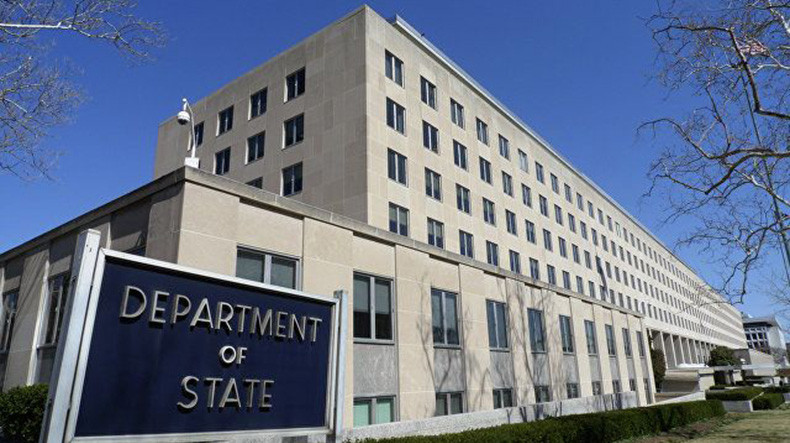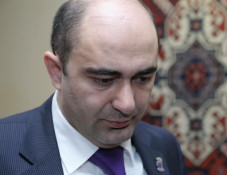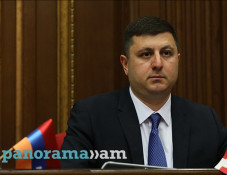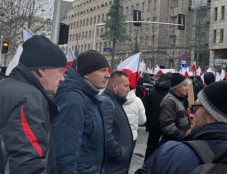
U.S. State Department releases report on human rights practices of Armenia
The Unites States Department of State has released its annual report on human rights practices of Armenia for 2018, presenting the country’s system of government, as well as the outcomes of the December 9 snap parliamentary elections, that “were held with respect for fundamental freedoms and enjoyed broad public trust that should be preserved through further election reforms.”
According to the report, human rights issues included torture; harsh and life threatening prison conditions; arbitrary arrest and detention; police violence against journalists; physical interference by security forces with freedom of assembly; restrictions on political participation; systemic government corruption; crimes involving violence or threats thereof targeting lesbian, gay, bisexual, transgender, and intersex (LGBTI) persons; inhuman and degrading treatment of persons with disabilities in institutions, including children; and worst forms of child labor.
The report highlights that the new government took steps to investigate and punish abuse, especially at high levels of government and law enforcement. On July 3, the Special Investigative Service (SIS) pressed charges against some former high-ranking officials in connection with their alleged roles in post-election clashes in 2008, when eight civilians and two police officers were killed.
The human rights report features 7 sections: Respect for the Integrity of the Person; Respect for Civil Liberties, Freedom to Participate in the Political Process; Corruption and Lack of Transparency in Government; Governmental Attitude Regarding International and Nongovernmental Investigation of Alleged Abuses of Human Rights; Discrimination, Societal Abuses, and Trafficking in Persons and Worker Rights, including several subsections.
The report says NGOs expressed concerns that the government did not promptly and accurately report incidents of deaths in the army. According to independent (and separate) monitoring of noncombat deaths by the NGOs Peace Dialogue and Helsinki Citizens Assembly Vanadzor, there were 24 noncombat deaths reported during the first half of the year, while the Ministry of Defense reported 31 such incidents for the same period.
The document states PM Nikol Pashinyan’s government gave new impetus to accountability for the events surrounding the aftermath of the 2008 presidential election, in which eight civilians and two police officers were killed. According to the government, in the period from July 3 until late fall, SIS launched several new criminal cases re-examining these events. The criminal cases entailed charges of overthrowing the constitutional order, abuse and exceeding official authority, torture, complicity in offering a bribe, official fraud, and falsification of evidence connected with the investigation of the 2008 post-election events. High profile suspects in those cases included former minister of defense Mikhail Harutyunyan, former deputy minister of defense Yuri Khachaturov, former chief of presidential staff Armen Gevorgyan, and former president Robert Kocharyan. Kocharyan was charged on July 27 with Article 300.1 of the criminal code, overthrowing the constitutional order, in connection with the March 1 2008 protests. On August 13, the court of appeals released him from pretrial detention. After a Court of Cassation determination that presidential immunity did not apply to his charges, he was arrested again on December 7. The investigations into the cases were ongoing at year’s end.
It reminds that concluding a visit from September 15-20, Council of Europe Commissioner for Human Rights Dunja Mijatovic noted the steps taken by the government to finally establish responsibility for the 10 deaths, but stressed that “this should be done carefully and in strict adherence to the principles of rule of law, judicial independence, transparency and guarantees of fair trial, in order to dispel any accusations of alleged revenge politics or selective justice.”
“Separatists, with Armenia’s support, continued to control most of Nagorno-Karabakh and seven surrounding Azerbaijani territories. The final status of Nagorno-Karabakh remained the subject of international mediation by the OSCE Minsk Group, cochaired by France, Russia, and the United States. Violence along the Line of Contact continued, although at lower levels starting in October, after the Armenian and Azerbaijani leaders met in Dushanbe. Recurrent shooting and shelling caused casualties and injuries among military and civilians. Following the April 2016 outbreak in violence, the sides to the conflict submitted complaints to the European Court of Human Rights (ECHR) accusing each other of committing atrocities during that time. The cases remained pending with the ECHR,” reads the Karabakh part of the report.
Reflecting on Armenia’s judiciary, the report states that although citizens had access to courts to file lawsuits seeking damages for alleged human rights violations, the courts were widely perceived as ‘corrupt’
The section on freedom of expression, including for the press, says that after the “velvet revolution” the media environment became more free as some outlets began to step away from self-censorship; however, some still refrained from critical comments of the new government not to appear “counterrevolutionary.”
The freedom of expression subsection says that individuals were free to criticize the government in private and online without fear of arrest. On June 18, however, PM Pashinyan posted on Facebook a comment denouncing as “antistate” propaganda carried by some television stations. While he did not mention any specific channels, according to some media watchdogs, the statement had a chilling effect on the media climate.
“Broadcast media, particularly public television, remained one of the primary sources of news and information for the majority of the population. According to some media watchdogs, public television continued to present news from a progovernment standpoint, even after the “velvet revolution,” replacing one government perspective with the other.
“Social media users freely expressed opinions about the new government and former authorities on various social media platforms. Use of fake social media accounts and attempts to manipulate the media, however, increased dramatically after the “velvet revolution.” The country’s few independent media outlets, mostly online, were not self-sustainable and survived through international donations, with limited or no revenues from advertising,” reads the report.
Newsfeed
Videos






























